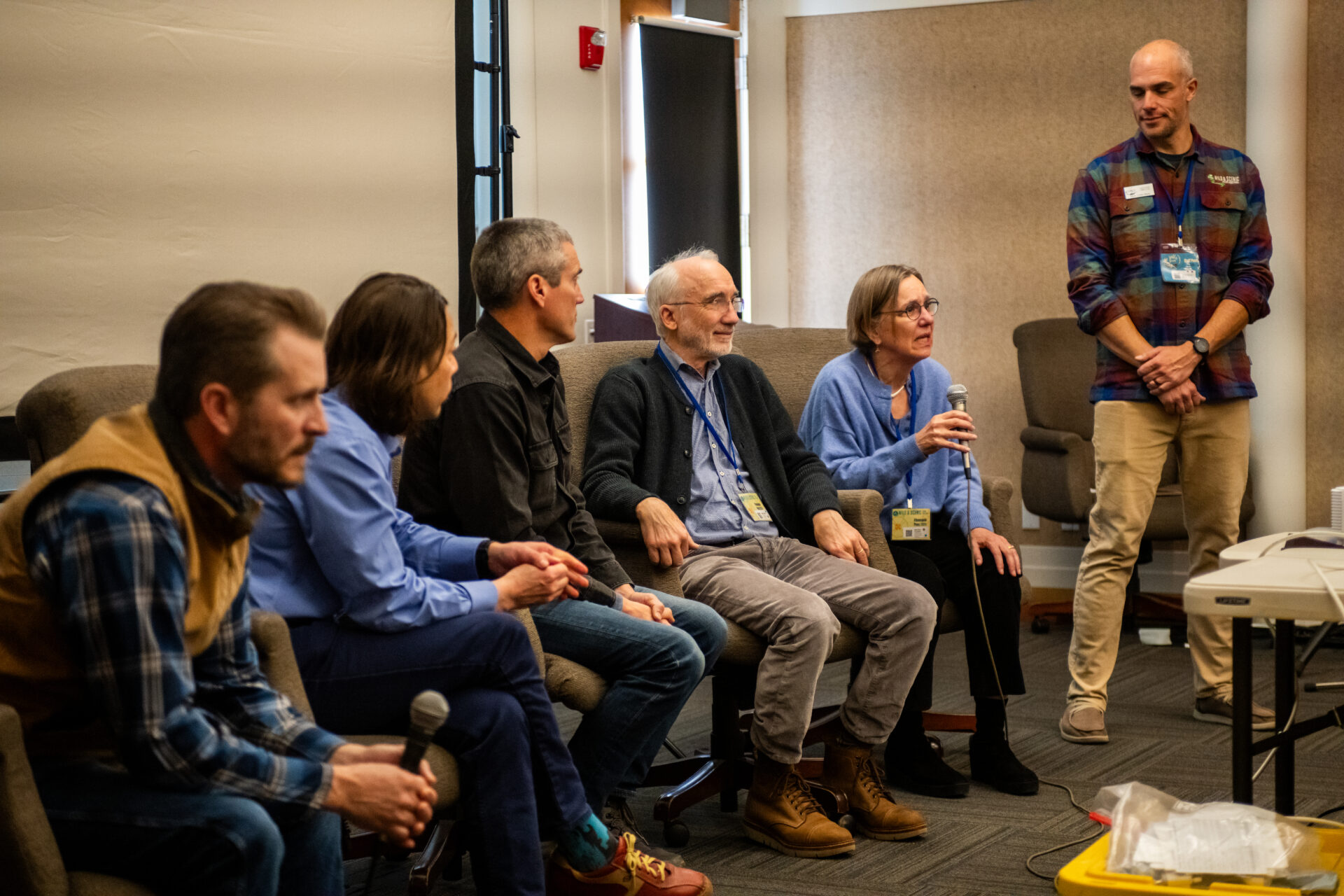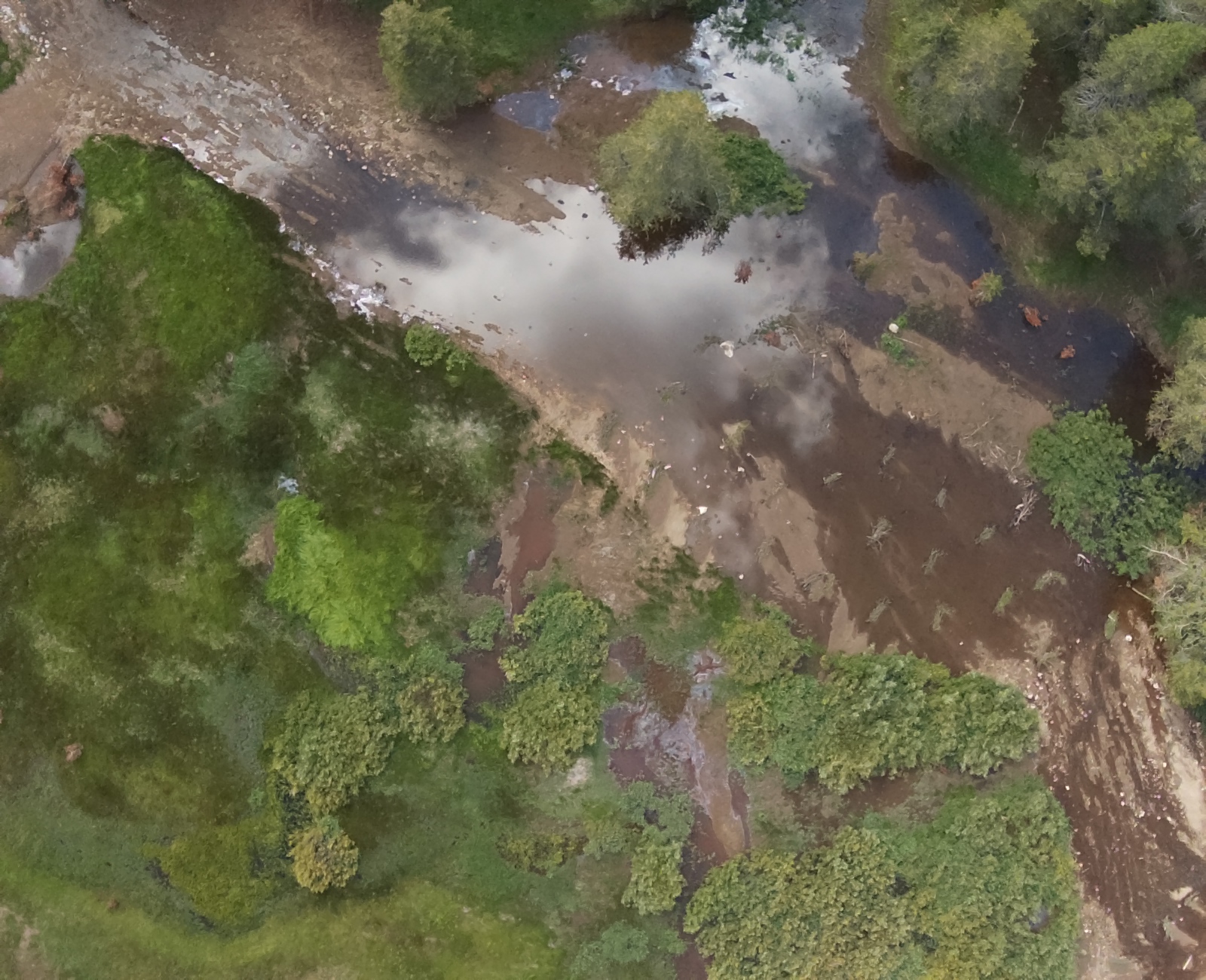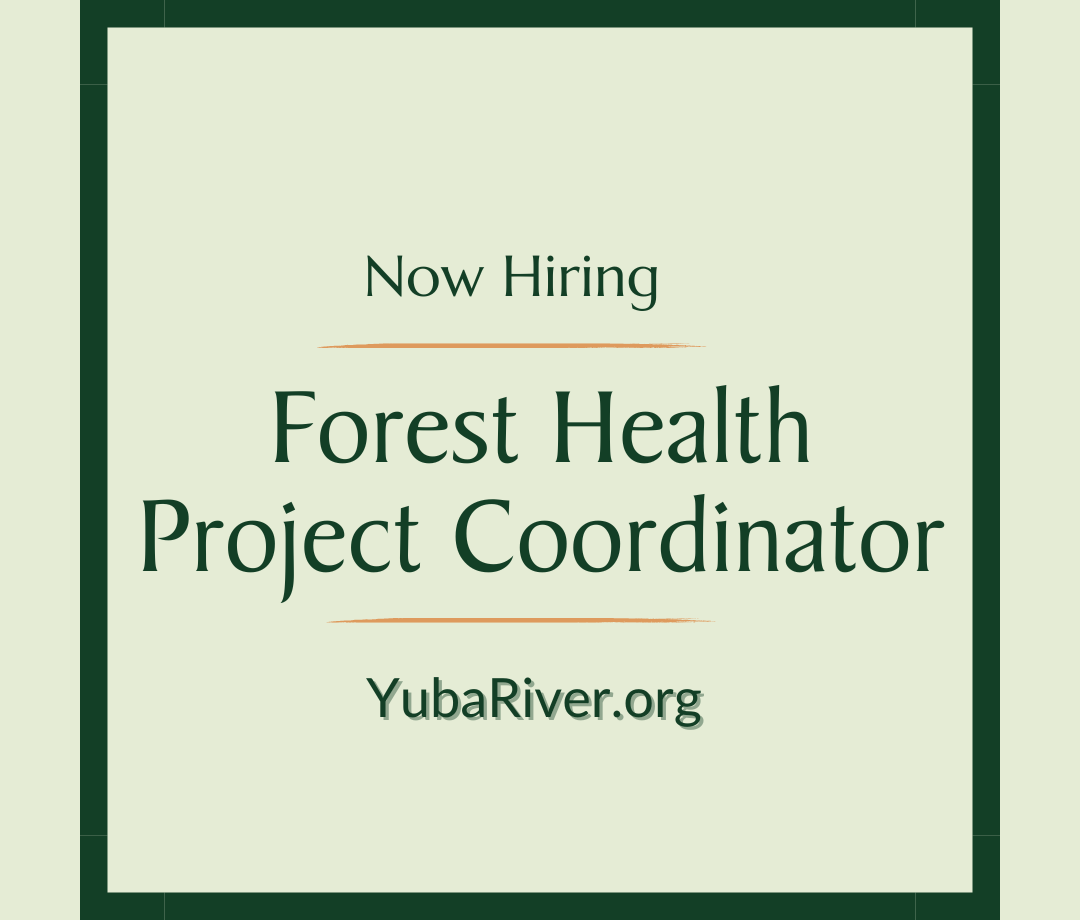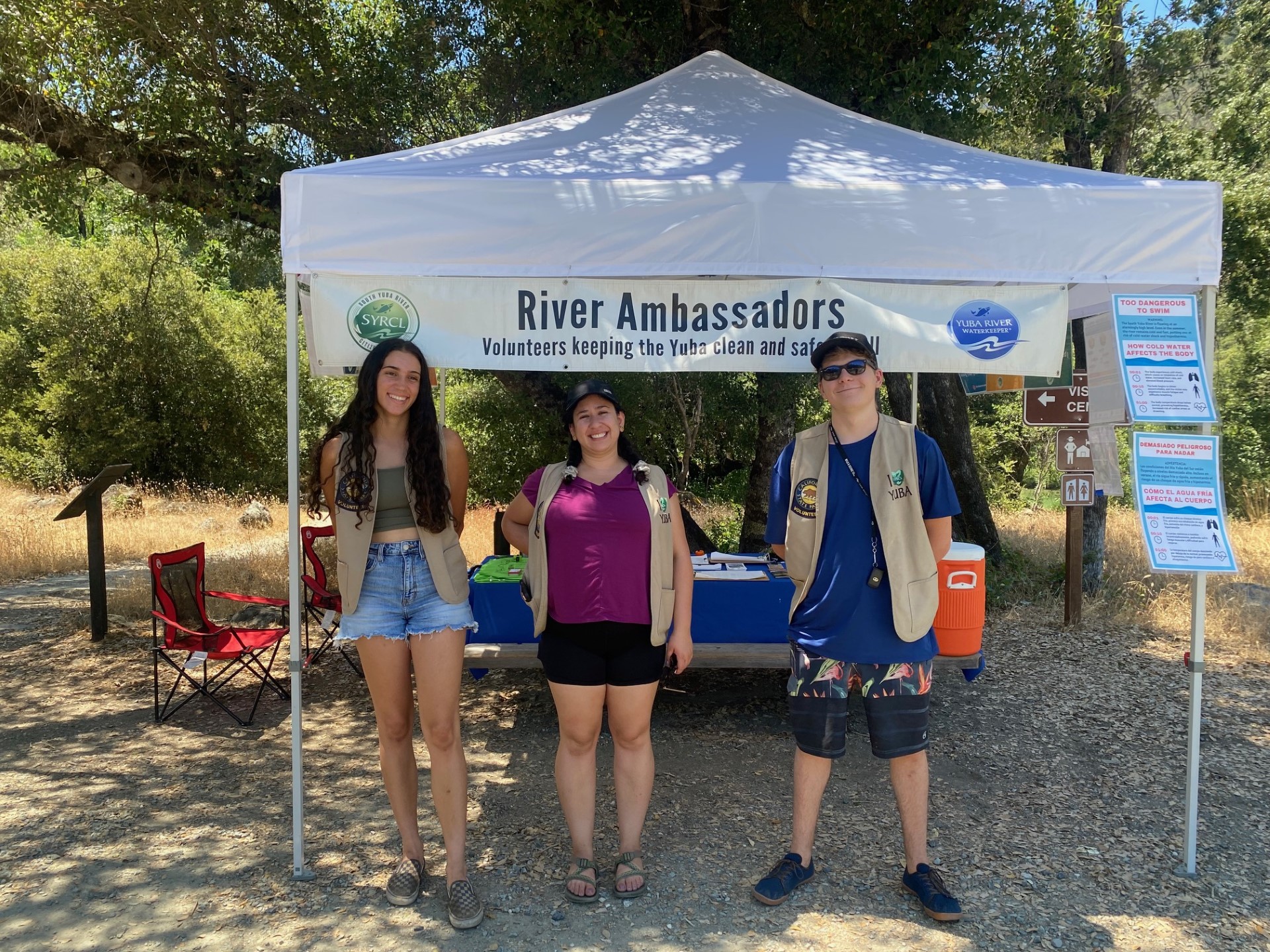California’s Watershed Healing: Experts Unite to Discuss the Vital Role of Healthy Forests in Water Supply and our Communities
In a groundbreaking panel discussion following the 2024 screening of the documentary California’s Watershed Healing ,(please watch the film at the end of this post), leading scientists and policymakers convened to address critical issues related to water supply, forest health, and climate resilience. The film, directed by James Thebaut, sheds light on the interconnectedness of healthy forests and our communities and the urgent need for collaborative and innovative work to restore our forests. The panel and audience delved into actionable solutions and near-term and future needs that must be implemented to tackle this critical issue.
The panelists shared their insights, emphasizing the importance of healthy forests and proactive forest management in maintaining California’s water balance, the creation of a restoration economy, and how to increase the pace and scale of this forest restoration work.
Here are quotes from some of the distinguished participants:
“Our research spans over three decades, and it’s clear: Healthy forests act as natural sponges, capturing and releasing water. They play a pivotal role in maintaining streamflow, groundwater recharge, and overall water availability.”
Dr. Roger Bales (Professor of Engineering and Management, UC Merced)
“From headwater catchments to valley floor recharge, we’ve studied the entire water basin. Our ‘whole-basin’ approach integrates forest management, reservoir operations, and groundwater strategies. It’s time to prioritize forest health for our water security.”
Dr. Martha Conklin (Professor Emerita of Civil and Environmental Engineering, UC Merced)
“Managing our national forestland is a shared responsibility. The Placer Big Trees Grove, home to Giant Sequoias, reminds us of our duty to safeguard these ancient sentinels. They’re not just trees; they’re water guardians.”
Eli Ilano (Forest Supervisor, Tahoe National Forest)
The panel and audience discussion highlighted the challenges posed by a landscape composed of millions of acres of forest that is fire-starved and underscored opportunities for clear solutions and collaboration. As California faces a changing climate, the call to action is clear: it’s time to prioritize forest health for our communities, local economy, and water security.
Nurture our forests, and they will sustain us.
California’s Watershed Healing is more than a film; it’s a rallying cry for healthy forests.
About California’s Watershed Healing: Directed by James Thebaut: this powerful documentary explores the delicate balance between forests, water, and climate resilience. It invites viewers to reimagine our relationship with our forests and take meaningful steps toward healing our watersheds.
- 1:40 – Introduction to Wild and Scenic Film Festival
- 4:10 – James Thebault, Film Director, CA Watershed Healing
- 5:24 – Film begins (film is not part of this You Tube video but the film can be viewed below)
- 6:36 – Panel Introduction
- 7:17 – Paradigm Shift – What does a Healthy Forest Look Like
- 8:04 – Secretary Wad Crowfoot – Healthy Forests and prescribed fire
- 9:29 – Willie Whiteseleley – Social License and Healthy Forests
- 11:00 – Eli Ilano (Tahoe National Forest Supervisor) “If we don’t do anything, things will not stay the same.”
- 13:02 – Fire impacts the entire ecosystem
- 13:53 – Insurance industry should take into account the work that is being done in/around the communities.
- 16:40 – California Insurance Commissioner can set standards.
- 17:20 – The potential concentric circles of collaboration – Firewise communities, Firesafe Councils, National Forests, and water agencies.
- 22:06 – Development into the Wildland Urban Interface.
- 25:44 – Partnerships, broadscale implementation, and creating a restoration economy.
- 30:22 – Valley water districts need to partner with foothills communities.
- 32:00 – Innovative solutions.
- 36:50 – Transitioning to new technologies – draft California Wood Utilization Strategy.
- 39:11 – Carbon sink not a carbon source
- 39:15 – Expanding partnerships from the North Yuba to the watershed. Increasing pace and scale of partnerships.
- 43:51 – Cost of maintaining and post project monitoring.
- 49:40 – Workforce Development.
- 55:05 – The next generation and the way forward
- 58:34 – Wrap up
Speakers:
Dr. Roger Bales is a Professor of Engineering and Management at UC Merced. He has degrees from Purdue, UC Berkeley, and Caltech and has been active in water- and climate-related research for over 35 years. His scholarship includes contributions in hydrology, water resources, glaciology, and resource management. His current work focuses on building the knowledge base and applying it to adapt California’s water resources, ecosystems, and economy to the impacts of climate warming. He joined UC Merced in 2003 and is also an Adjunct Civil and Environmental Engineering professor at UC Berkeley. He has led multi-disciplinary research programs, including being co-director of the UC Center for Ecosystem Climate Solutions.
Dr. Martha Conklin is Professor Emerita of Civil and Environmental Engineering at UC Merced, having joined the university in 2003 as one of the Founding Faculty. She has published widely on processes controlling water balances in forested and mountain catchments, chemical processes in natural waters, and contaminant hydrology of surface and groundwaters. With other collaborators and using the Sierra Nevada as a natural laboratory, she has used a “whole-basin” approach to water resources management, from headwater-catchment vegetation management to optimized reservoir operations to strategic groundwater recharge on the valley floor. She has a B.A. in Physics (Mount Holyoke) and an M.S. and Ph.D. in Environmental Engineering Science (Caltech).
Wade Crowfoot serves as California’s Natural Resources Secretary, leading efforts to conserve California’s environment and natural resources. He has served as Secretary since 2019 and advises Governor Newsom as a member of his cabinet. Secretary Crowfoot oversees an agency of over 25,000 employees spread across 26 departments, commissions, and conservancies. His agency is charged with stewarding California’s forests and natural lands, rivers and water supplies, and coast and ocean. It also protects natural places, wildlife and biodiversity, and helps oversee the state’s world-leading clean energy transition.
Eli Ilano has served as the Forest Supervisor for the Tahoe National Forest since 2016. In this role, he oversees 871,495 acres of national forestland across six counties in the Sierra, including the Placer Big Trees Grove, the northernmost grove of Giant Sequoia. Among his duties, Eli coordinates with other agencies and private landowners on projects designed to reduce fuels, protect communities from wildfire, and thin forests at risk of infestation by bark beetles. Eli earned a Bachelor’s degree in Economics from the University of California at Santa Cruz in 1995 and a Master’s degrees in Environmental Policy and Landscape Architecture and City and Regional Planning from the University of California at Berkeley in 2001.
Willie Whittlesey, General Manager of the Yuba Water Agency, oversees all aspects of Yuba Water Agency’s operations and management, including flood risk reduction, hydropower generation, energy sales, water rights, water supply and more. Having grown up in the Sierra Nevada foothills, Whittlesey is also passionate about using his role at Yuba Water to help accelerate the pace and scale of forest management and is leading the agency’s efforts to protect the Yuba River watershed from catastrophic fire through innovative partnerships, programs and projects. Prior to joining Yuba Water, Whittlesey spent 13 years with Pacific Gas & Electric’s land and hydro generation departments and six years in private forest management.
Moderator: Aaron Zettler-Mann grew up swimming and playing in the creeks and rivers near his coastal home in a small town in Humboldt County. He has completed three degrees in Geography; a BA at the University of Colorado at Boulder, a MA at the University of Denver, and a PhD at the University of Oregon. His academic training and research are in fluvial geomorphology and remote sensing. Aaron has taught a variety of courses including remote sensing, geomorphology, climatology, and geographic information systems. In addition, he has been involved in river research projects across the western US, and internationally. Aaron’s drive to protect and improve the health of the West’s watersheds led him to SYRCL. Initially Aaron was SYRCL’s Watershed Science Director. In 2023, he became SYRCL’s Executive Director.
For more information visit:
Forest Health Archives • SYRCL (yubariver.org)
UC Merced Environmental Engineering: New Film Profiles Immediate Actions to Restore California’s Wildfire-vulnerable Forests | Newsroom (ucmerced.edu)
Panelists bios and panel description: California’s Watershed Healing: Community Screening + Panel | 2024 Wild & Scenic Film Festival (eventive.org)
North Yuba Forest Partnership watershed map North Yuba Forest Partnership (arcgis.com)
Did you enjoy this post?
Get new SYRCL articles delivered to your inbox by subscribing to our ENews.




